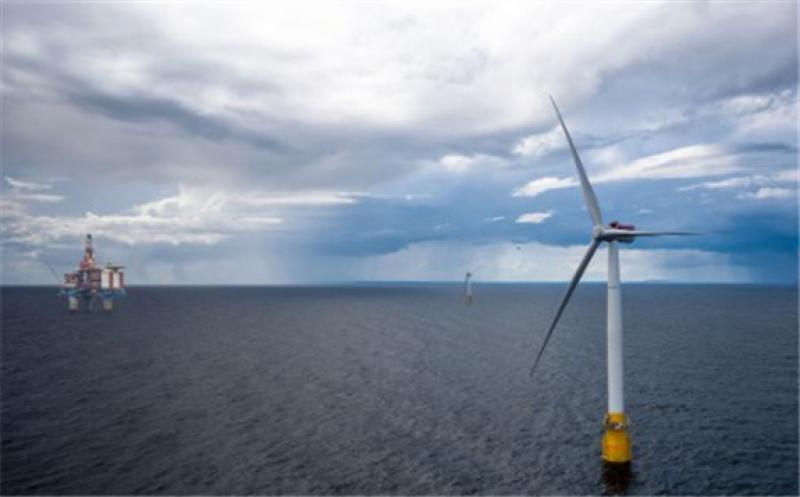The UK Government will conduct a review of current energy infrastructure at sea as it sets its sights on expanding offshore wind energy.

Energy Minister Kwasi Kwarteng announced the move, which aims to the help the UK increase offshore wind power from 10 GW to 40 GW by 2030.
It’s claimed the improvement could help power an extra 14 million homes with wind energy.
The review will focus on improving the cabling and transmission infrastructure to reduce the costs and impacts of connecting new wind farms to the onshore electricity grid.
It will also consider how hybrid projects could combine offshore wind turbines connections with interconnectors to neighbouring markets – helping export more green energy abroad.
The announcement follows an Oil and Gas Authority report which said offshore renewables could account for 30% of the emissions reductions needed by 2050.
Renewable energy made up almost half of the UK’s electricity generation in the first three months of 2020 – beating the previous quarterly record of 39% set last year.
This was largely powered by offshore wind, generating 30% of the UK’s electricity in the four months to April.
UK Government Minister for Scotland, David Duguid, said: “The renewables industry is vitally important to Scotland and the UK Government is committed to help drive innovation in the sector, including supporting Scottish wind projects.
“We are a world leader in developing renewable energies and harnessing the economic growth benefits and creation of highly skilled jobs this brings to communities.
“I welcome this review as an opportunity to further cement Scotland’s position at the heart of the UK’s green revolution.”
RenewableUK’s deputy chief executive, Melanie Onn, said: “There is clearly a need to review how we connect future projects to the grid given the scale of ambition for offshore wind, so we welcome today’s announcement.
“It’s vital that Government, Ofgem, National Grid and industry all work together to achieve our 2030 target of 40GW and develop effective, long-term solutions to deliver the level of offshore wind the UK will need to meet our net zero emissions target.”
Executive director of the Electricity System Operator, Fintan Slye, said: “Assessing the best approach to offshore windfarm connections will be vital for the industry to scale up and reach its full potential in the years ahead. We fully support the minister with this review, assessing the costs and benefits of different coordinated offshore network designs and technology and how to best minimise the impact on consumers and coastal communities.”